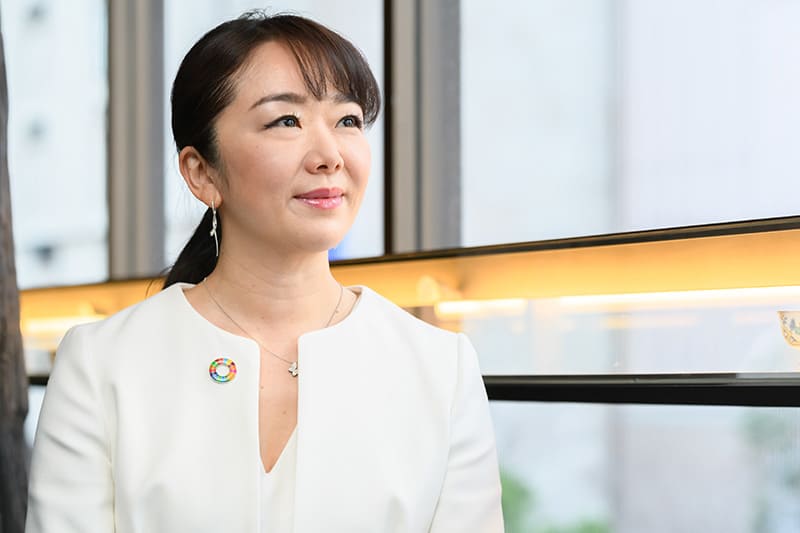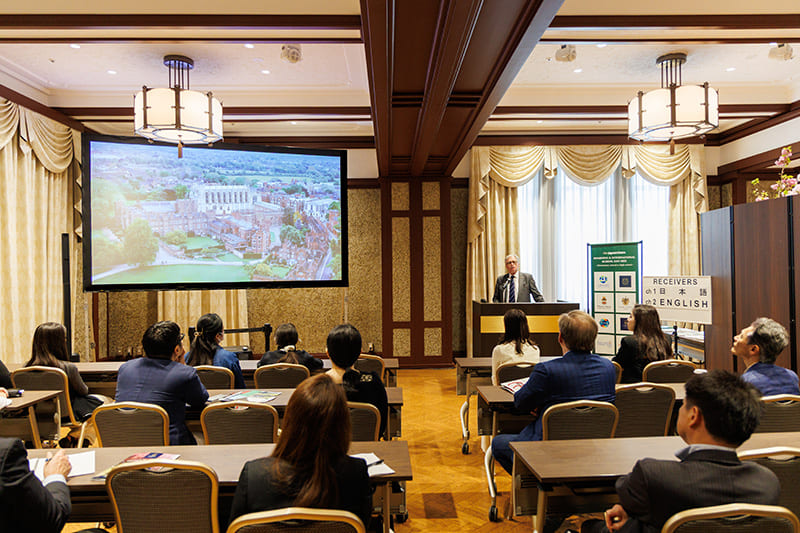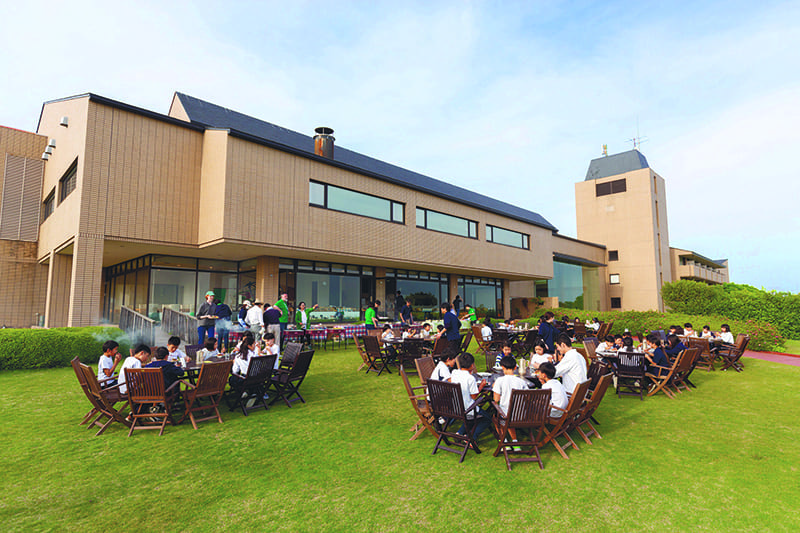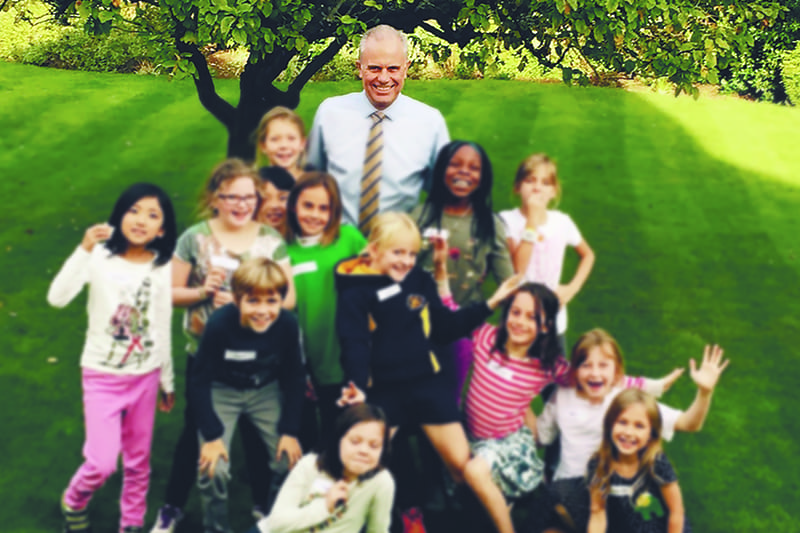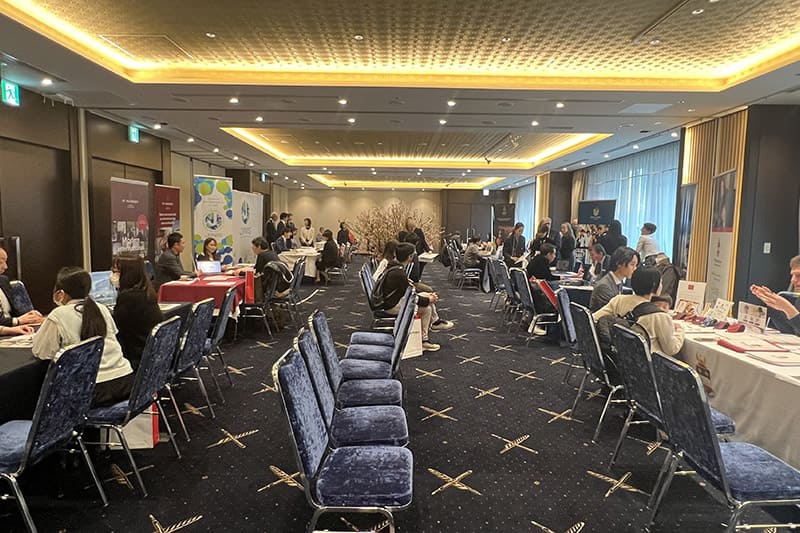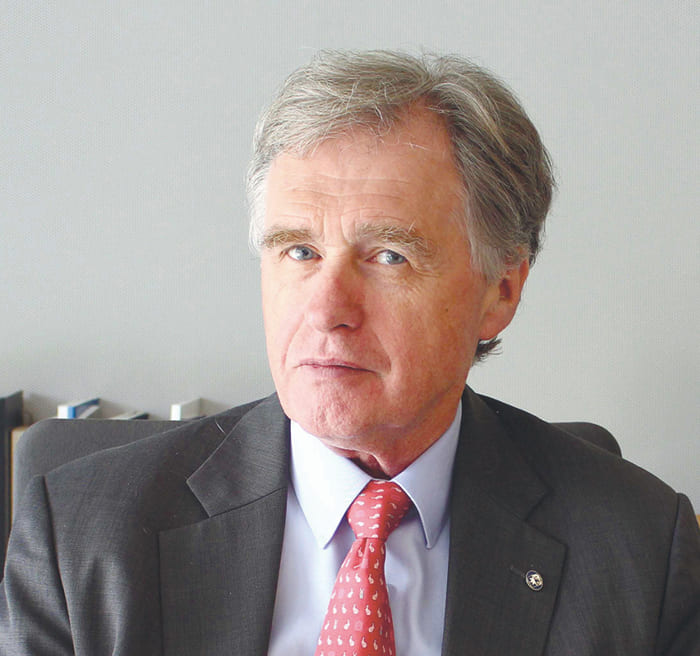September 22, 2025
Poppins’ EduCare: Cultivating kids’ resilience for life
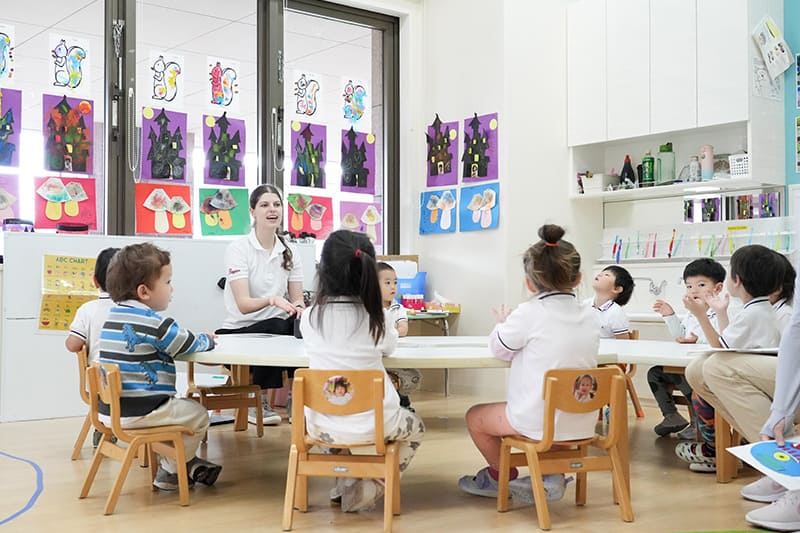
In Japan today, opportunities for women to participate in the workforce continue to expand. According to the latest survey by the Ministry of Internal Affairs and Communications, dual-income households accounted for nearly 70% of all married households in 2024, totaling 13 million.
Yet challenges remain. Having children or elderly parents often creates major barriers to sustaining a career. Issues such as trouble with finding child care or having to leave a job to provide elder care are not just personal problems; they directly affect companies and the sustainability of society as a whole.
Since its founding in 1987, Poppins Corp. has supported working women by providing reliable solutions for both child care and elder care, with a mission of accompanying women through every stage of life. Today, that vision is carried forward by Group CEO Maiko Todoroki, the daughter of the founder, who has adapted the company’s founding spirit to the needs of the times.
Starting as Japan’s first provider of nanny training and placement, Poppins has expanded into education, child care, elder care and even pet care, building a comprehensive system to support working families. These initiatives are directly tied to addressing social challenges such as Japan’s declining birth rate, aging population and the promotion of women’s participation in the workforce, contributing to the creation of a more sustainable society.
Defining the EduCarer
The Japan Times spoke with Todoroki about Poppins’ child care services. “Back then, kindergartens were seen as places for education, while day care centers carried the image of being merely places to ‘leave’ children. My mother, the founder, believed we needed to create high-quality environments where parents would want to entrust their children even as they pursued their own work.”
Guided by this principle, the company operates nanny services, licensed and certified child care centers, and employer-sponsored facilities, providing stable environments for working families. It has also established after-school clubs and educational programs that offer children safe, engaging places to learn beyond regular school hours. In addition, Poppins runs international and bilingual schools that provide global education from early childhood. In all, it delivers a broad range of services to meet the diverse needs of families.
When the company was founded, the concept of early childhood education was still far from mainstream in Japan. Yet research was beginning to show that the environment from birth has a profound impact on brain development and that learning begins the moment a child is born. With this recognition, Poppins sought to go beyond custodial care and integrate educational elements. Out of this approach emerged EduCare.
The aim of EduCare is to nurture the skills that children need to thrive while also cultivating empathy and emotional richness. By grounding child care in the growth of the heart, children naturally acquire learning and sensitivity in their daily lives, strengthening their ability to live independently within society.
Todoroki said: “What matters is not the accumulation of knowledge, but the nurturing of qualities such as sensitivity, self-esteem and perseverance. The highest standard of EduCare is not about handing down information; it is about cultivating the strength to live. When children take the initiative to learn, adults should not stand merely as instructors. They should stand as facilitators, supporting each step of a child’s growth.”
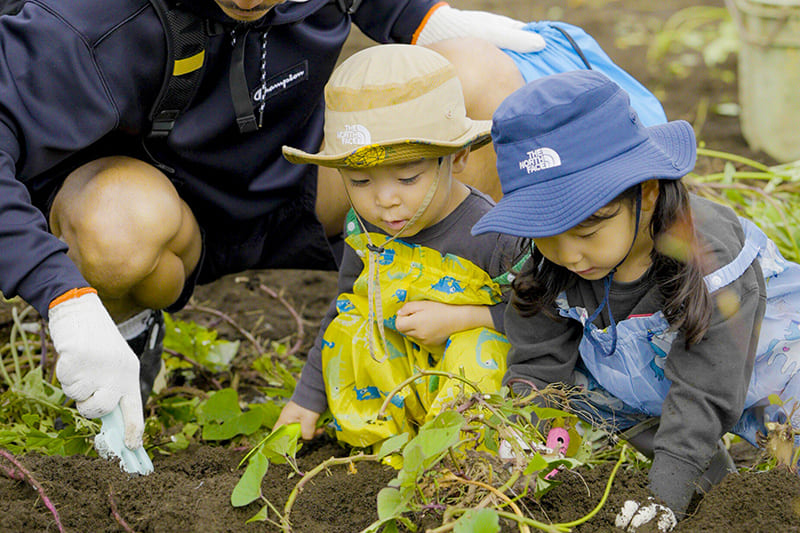
Putting EduCare into practice
In her daily guidance, Todoroki reminds child care professionals, “Never overlook a child’s fleeting spark of discovery.” Capturing those moments with care and making learning visible is what Poppins calls documentation.
“Children make new discoveries every single day,” Todoroki said. “Recording those small expressions with care and connecting them to the next stage of learning is essential to the practice of EduCare.”
According to Todoroki, documentation at Poppins is guided by two frameworks. The first is “multiple intelligences,” a theory proposed by Harvard University professor Howard Gardner. She explained that it recognizes each child as possessing a multifaceted individuality and said educators are encouraged to understand children’s uniqueness from multiple perspectives.
The second framework is the three-step approach of “see, think, and wonder.” First, see: Caregivers carefully observe a child’s expressions and actions. Next, think: They reflect on why a particular activity emerged, why a child’s eyes lit up or what might lie behind a smile or a moment of sadness. Finally, wonder: They ask how this learning can be carried forward, and what kind of scaffolding can help the child explore further.
Through this stance of scaffolding, caregivers receive each child’s small expressions with care and support them in taking the next step in their learning journey.
Todoroki also emphasizes the importance of giving children opportunities to encounter authenticity in their everyday lives. The practice of EduCare reflects the belief that by engaging with the genuine — through all five senses — children develop the capacity to learn in a deeper, more lasting way. A Steinway grand piano allows children to experience the resonance of live music from an early age. In physical education, programs are supervised by Olympic athletes, who also visit in person to provide direct guidance. The company also collaborates with experts in the arts and programming to offer children high-quality experiences from an early stage. “As children encounter authentic, high-level experiences in their early years,” Todoroki noted, “their sensitivity and creativity are profoundly shaped.”
The company has also enhanced EduCare by integrating insights from neuroscience into its daily practice. Todoroki cited the work of Dr. Jack Shonkoff, the founding director of Harvard’s Center on the Developing Child, who likens infant brain development to a tennis match.
Babies send signals through eye contact, vocalizations and movement. When these signals are met with a response, synapses are strengthened and the brain develops. Conversely, when infants receive no response, their development can be hindered. Building on this idea, Todoroki noted: “An infant’s learning is nurtured through reciprocal interaction. That is why I tell caregivers it is essential to always receive a child’s signals and respond to them with care.”
Such insights also challenge Japan’s deeply rooted “3-year-old myth” — the notion that mothers must raise their children by themselves until the age of 3. In reality, it is impossible for a single adult to respond continuously to every signal an infant sends, nor is it considered ideal. Rather, it is thought that when fathers, grandparents, caregivers and other adults share in these interactions, a child’s brain can be nurtured in richer and more diverse ways.
In its practice of EduCare, Poppins also emphasizes fostering diversity and a global outlook. “Being global is not about speaking English,” Todoroki explained. “The stage is no longer limited to Japan — it is the world. What matters is whether children can look beyond their immediate surroundings and imagine someone, somewhere else in the world. That ability to extend empathy across borders is a vital skill fostered through EduCare.”
Exposure to different cultures and values from an early age provides the foundation for accepting diversity and forms the basis for later participation in the international community. With this in mind, in July Poppins Active Learning International School became an approved provider of the Cambridge Early Years program for children age 3 and above, which places the child at the center and encourages self-directed learning through play.
Addressing challenges
Drawing on her overseas experiences, Todoroki began to question why mothers in Japan are expected to raise children alone. She stresses the need to ease the sense of responsibility that mothers unconsciously impose on themselves, as well as the expectations society assumes, and instead provide families with a wider range of choices.
By engaging highly trained professionals to provide quality education and care, mothers can be freed from the belief that “I must do everything myself.” For children, interacting with a variety of adults offers richer, more enjoyable experiences.
For working families, child care must take place in environments of trust. When those hours also foster learning and emotional growth, their value increases substantially. EduCare defines that time as a time for growth, with Poppins acting as a bridge between home and society.
Todoroki reflected on the broader vision: “The founder often said that educational approaches such as Steiner, Montessori and Reggio Emilia all began with the philosophy of a single individual. In the same way, we hope that the Poppins Approach will one day be recognized internationally as its own model.”
In closing, Todoroki shared her vision for the future: “Work styles in Japan have largely been shaped from a male perspective. But today, women play a vital role in society. That is why we must rethink support systems and benefits from the perspective of women — not only shorter working hours, but also how household tasks, child care and elder care can be shared with society rather than carried alone. Expanding these new options is essential.
“In fact, more people are beginning to accept the idea of outsourcing domestic tasks, and the use of babysitters and support services is spreading. This is an inevitable shift — and also a significant opportunity for Poppins. Beyond the 38 years we have dedicated to supporting working women, I believe a new value axis of society is emerging: well-being. When women shine, society shines — and together, we can change the world.”
